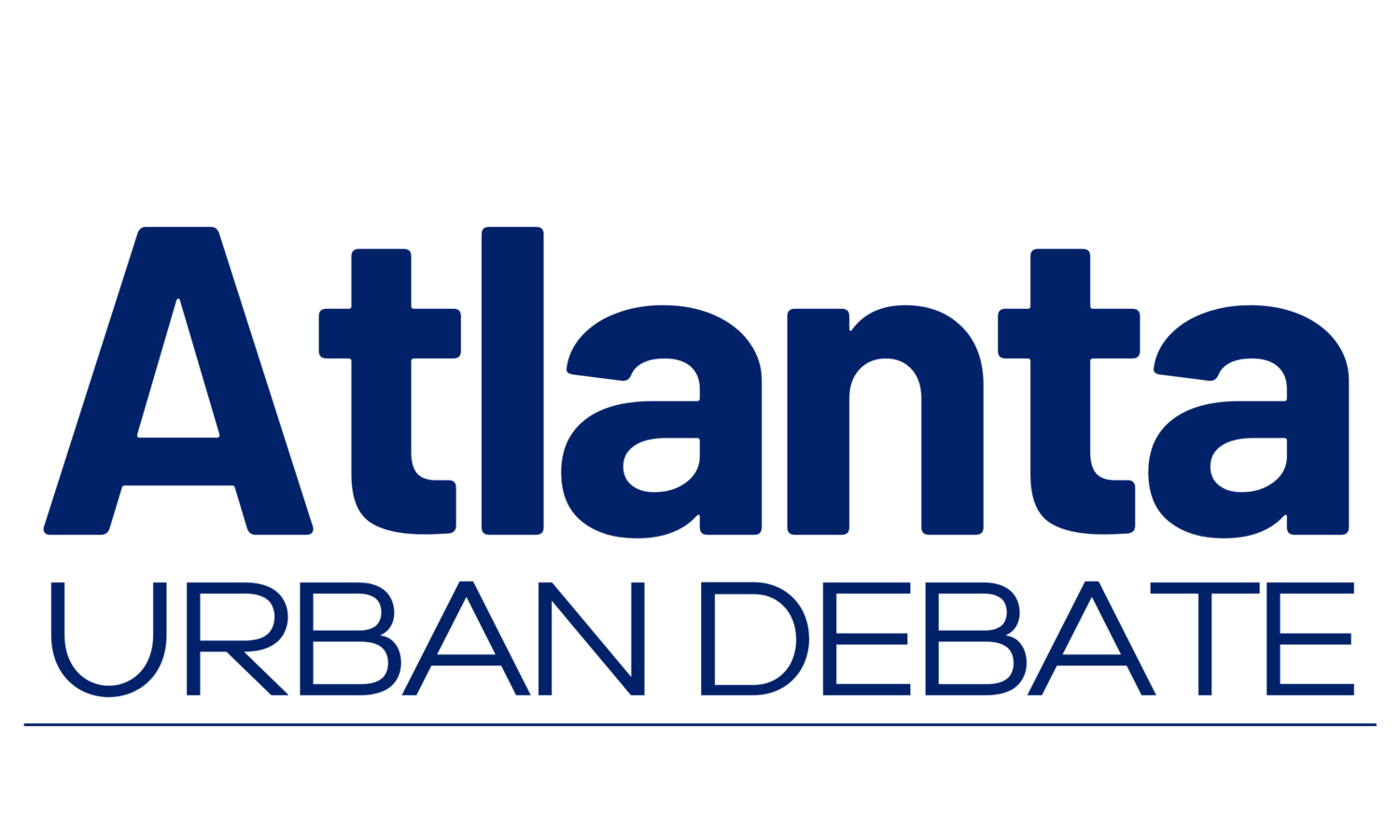The Atlanta Urban Debate League is committed to providing excellent debate education programs, services, and opportunities to diverse students, educators, and members of the community!
Asking & Answering Questions: What Is Crossfire?
What Is Crossfire?
Crossfire is a form of mutual cross-examination in which debaters BOTH ask and answer questions.
Crossfire takes place after each set of speeches except the Final Focus.
After the Constructives & Rebuttals, the debaters who just spoke will participate in a “Crossfire.”
After the Summary Speeches, ALL debaters will participate in a “Grand Crossfire.”
In Crossfire, each side will ask and answer questions about the debate.
The team who spoke first (the “Pro”) asks the first question.
Both teams alternate asking and answering questions.
Example
Cayden (Pro) and Simion (Con) just finished the Constructive Speeches.
Since Cayden spoke first, he asks the first question.
Simion answers the question, then asks a question of his own.
Both Cayden and Simion alternate until time expires.
Which Debater(s) Participate In Crossfire?
Crossfire (1 v. 1) takes place after both the Constructives and Rebuttals.
The two debaters who just spoke participate in Crossfire.
The debater who spoke first (from the “Pro” side) asks the first question.
Grand Crossfire (2 v. 2) takes place after the Summary Speeches.
ALL debaters participate in the Grand Crossfire.
The team who spoke first (the “Pro”) asks the first question.
The 2nd Speaker of each team takes the lead for their side.
What Is A Good Crossfire? How Does It Help Me Win?
Crossfire has three goals:
Get information from the judge.
Get information from your opponents
Defend your arguments (or attack those of your opponent)
An excellent Crossfire helps you win by defending / attacking key arguments in the debate. To do this, Crossfire must be ORGANIZED and MAKE ARGUMENTS.
To ensure Crossfire stays organized, your team:
Should NOT talk over the other team
Should NOT ask excessive follow-up questions
Should BE RESPECTFUL of the other team
Should ALTERNATE asking and answering questions
Should ANSWER questions precisely and concisely
To ensure Crossfire makes argument, your team:
Should ASK clear, specific questions related to key arguments in the debate.
Should FOCUS on one or two arguments. Time is short!
Should REFERENCE evidence / research that supports your argument
Should AVOID open-ended (or Yes / No) questions
For more tips, check our policy debate curriculum on atlantadebate.org! All the tips for a good Cross-Examination apply to Crossfire.
